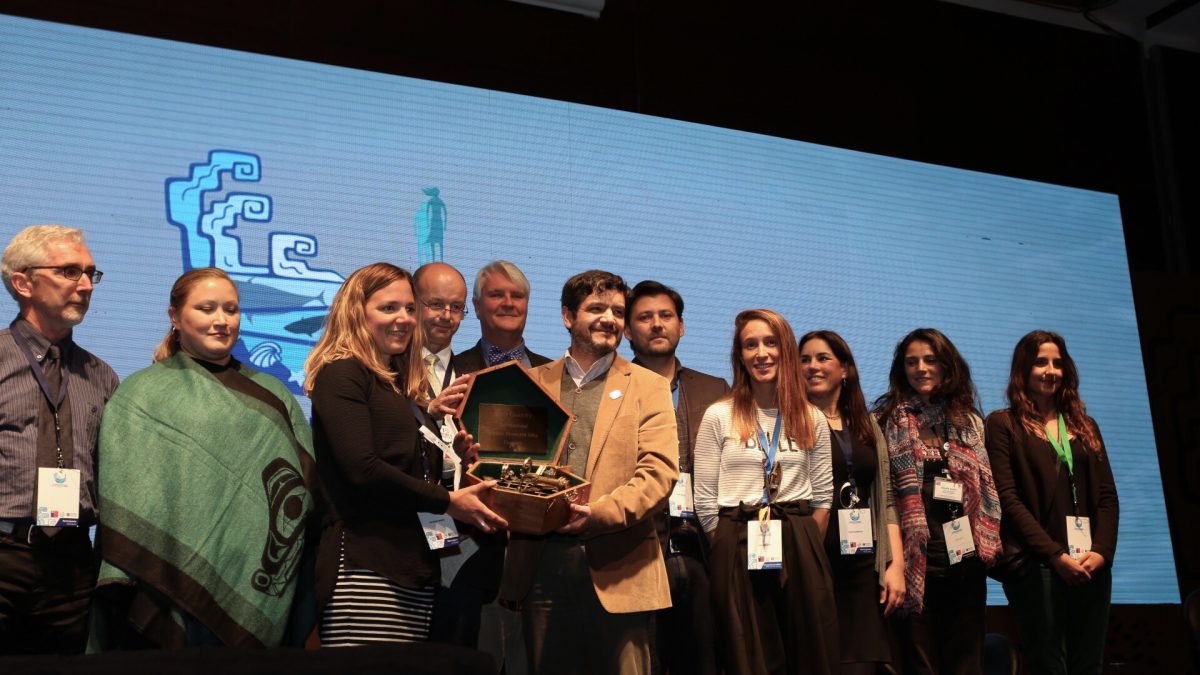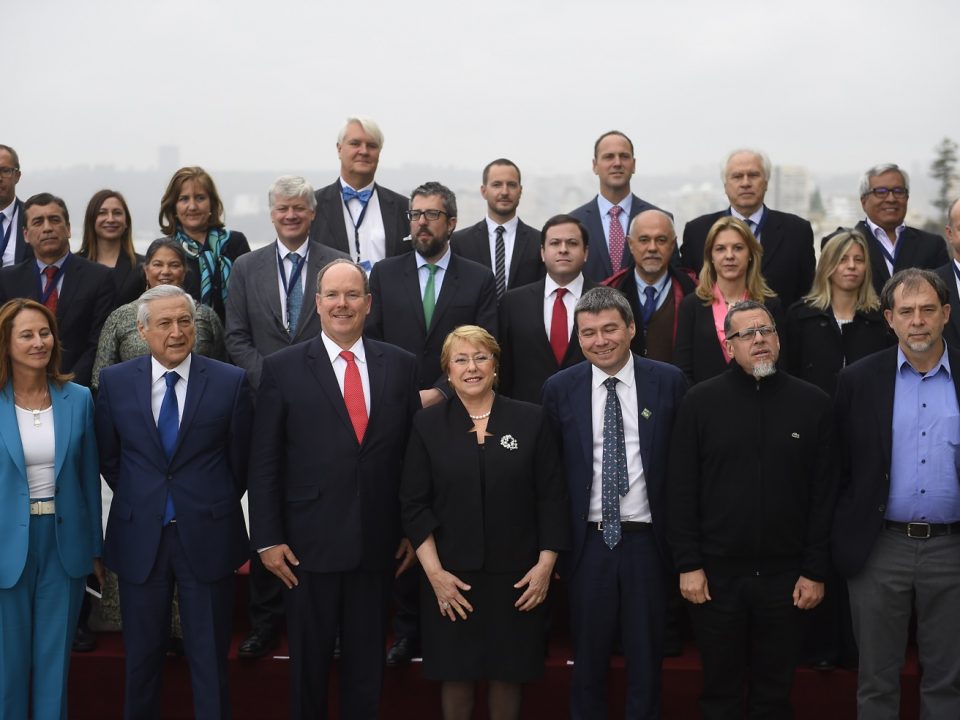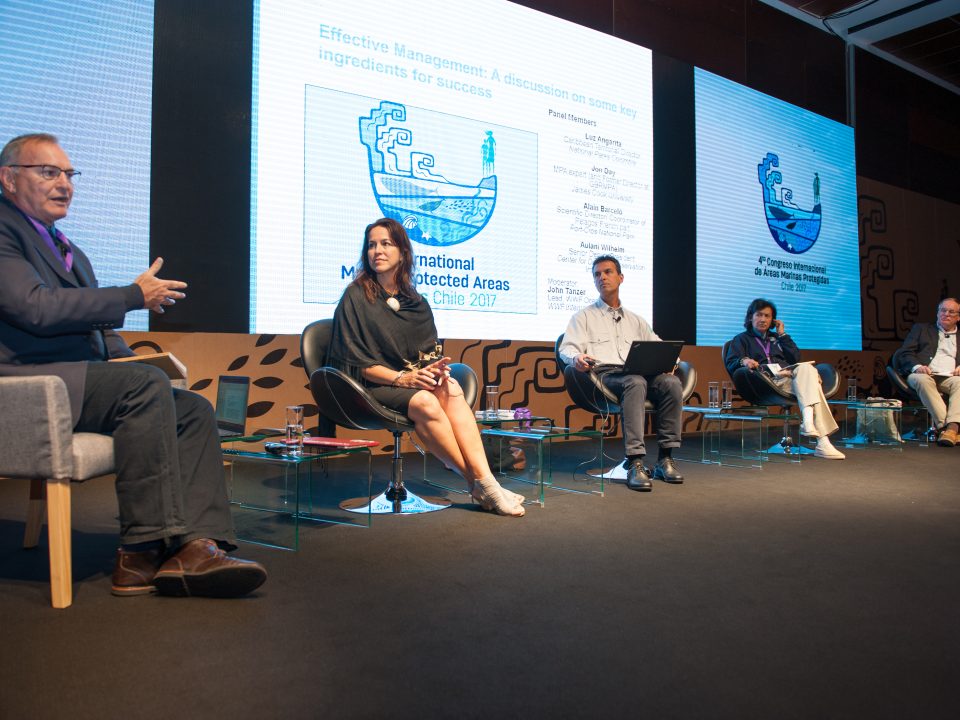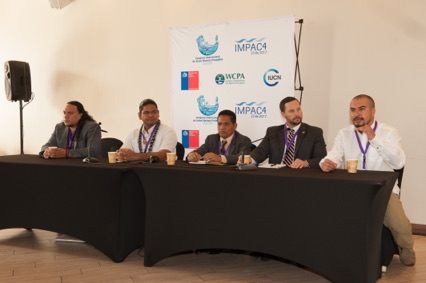This Friday, September 8th, the International Marine Protected Areas Congress, IMPAC 4 Chile 2017, finalized an intense week of debates and events that brought together more than 1,000 participants from 80 countries of the world, in La Serena-Coquimbo.
The day began with the Panel on “AMP: our shared vision for the future”, addressing the challenges and opportunities of marine protected areas in the fulfillment of Aichi Target 11 and the Sustainable Development Goal 14.
Mike Wong, IUCN-WCPA regional vice president North America, moderator, said it is not possible to look to the future without looking back. “One of the lessons learned is the clear message we have heard this week, that we have focused on the goals but have lost focus on quality. It is not only about achieving that goal, but also about issues such as ecological representativeness, connectivity, among others, it’s about making wise management”. A long-term success requires the awareness of stakeholders, especially youth, Wong said.
Sandra Bessudo, Founder and Executive Director of Malpelo Foundation, Colombia, commented on the experience of the Eastern Tropical Pacific corridor, which includes several Central and South American countries, and work to protect large areas with migratory species. “What is not shared does not exist, that is why inter-sectoral and inter-institutional coordination between governments, scientists, and individuals is necessary, and generate adequate funding to fill gaps.”
Tukabu Teroroko, Director of the Phoenix Islands Protected Area (PIPA), Republic of Kiribati, shared the experience of this MPA. “We had a big illegal fishing problem, which with the protection of the area we have been able to improve. It was a remote and isolated area, which lacked interest. Today, the challenges are focused on improving and expanding surveillance, developing local capacities, creating access to funding and sharing information among scientists”.
Mariasole Bianco (IUCN-WCPA Young Professionals, emphasized that “today we must talk about the identification of drivers that have been used to establish MPAs. We must take care that young people maintain their initial motivation to care for the oceans, empower them, work together inter-generationally, for the future of our Planet”.
Finally, Dan Laffoley, Senior Advisor on Marine Science and Conservation, IUCN Global Marine and Polar Program, said we are beginning to see what has been done in the past, with more extreme events, declining ecosystems, and will come the day when people demand better climate than economic benefits. “We must look again at the costs and benefits. We can not ignore the value of ecosystem services, on which so many people depend. In addition, we must calculate the risks, which today are massive. We want everything today, when we should really think about tomorrow. ”
Kenton Miller Award 2017
Deputy Director of the World Commission on Protected Areas, WCPA, Julia Miranda, delivered the Kenton Miller Award for Innovation in Protected Areas, 2017. This year the relevant contribution in conservation and protection of marine areas was rewarded.
The winner was Keobel Sakuma of Palau for the development and establishment of the Palau National Marine Sanctuary. Keobel represents the team and partners who designed and researched for the establishment of this MPA, the sixth largest in the world, which based its establishment on a traditional and customary method practiced throughout the Pacific region, along with contemporary mechanisms for management and monitoring of resources. This MPA is currently relevant for the world’s oceans, and particularly for small island developing states.
“Not only is it one of the largest MPAs in the world, it is also 100% of the national marine area of Palau. There could be no greater commitment on the part of a country towards ocean conservation. They are an example and inspiration”, Miranda said.
Sakuma thanked this recognition on behalf of the President of his country and all who contributed over time, in addition to thanking the city of La Serena for having developed IMPAC 4. “It is an incredible honor to have even been nominated. Everyone here knows that these are group efforts, no one achieves these results alone. It has been thanks to the involvement of people, governments, alliances with other partners. I feel honored”, he said.
IMPAC 5 and High Level Meeting
The Congress ended with a closing ceremony on Friday 8th, September, with the summary Panel with each of the topics of discussion of the week, moderated by Christophe Lefevbre of the French Agency of Biodiversity. Carlos Gaymer (Universidad Católica del Norte, Chile) focused on AMP and Global Change; Daniel González (Fishermen’s Association of Juan Fernández, Chile) on AMP and Coastal Communities; Alejandra Figueroa (Ministry of the Environment, Chile), on MPA and Effective Management; and François Simard (IUCN), closed with his ideas on AMP and Shared Vision of the Future.
The sextant – symbol of the Marine Protected Areas Congress- was delivered to the organizers of IMPAC 5, Canada.
IMPAC 4, will continue in the city of Viña del Mar, with the High Level Meeting on September 9th. A “Call for Action for the Oceans” emanating from the Congress will be signed, The event will be led by the President of the Republic of Chile, Michelle Bachelet, and the Minister of the Environment and Chairman of IMPAC 4, Marcelo Mena. H.M. Prince Albert II of Monaco and authorities from various countries will also participate.




